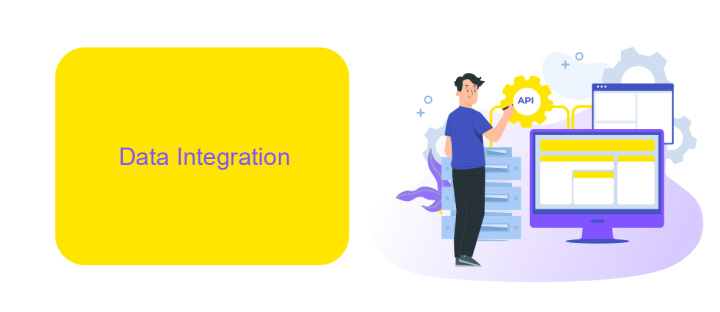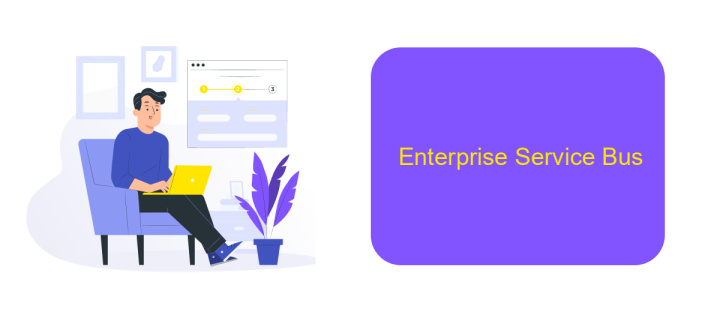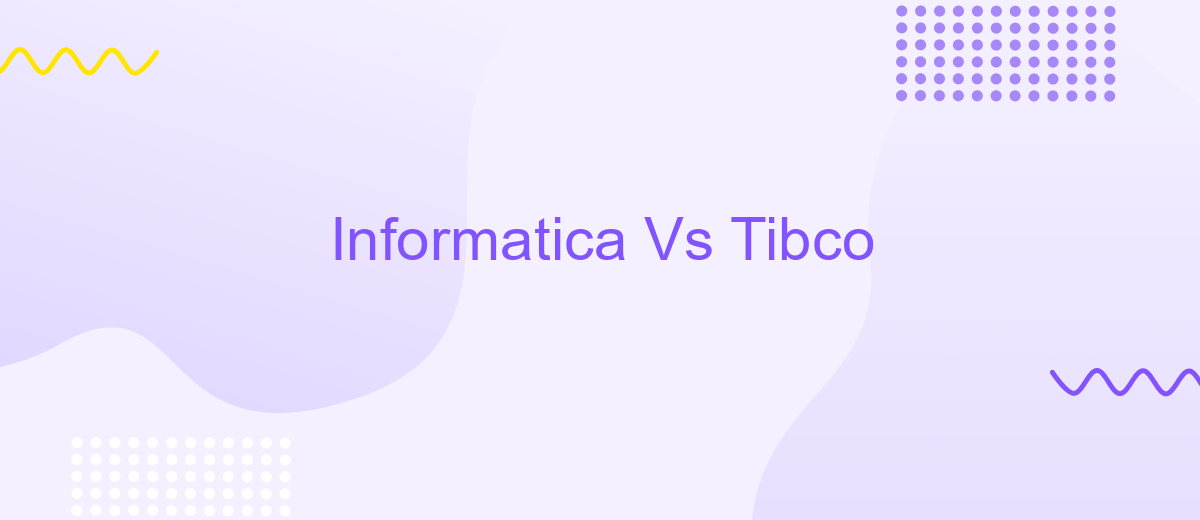Informatica Vs Tibco
When choosing a data integration and management solution, Informatica and TIBCO are two prominent contenders. Both platforms offer robust tools for data integration, transformation, and analytics. This article aims to compare Informatica and TIBCO, examining their features, performance, and suitability for various business needs, helping you make an informed decision on which solution aligns best with your organizational goals.
Introduction
In today's digital landscape, businesses are increasingly relying on data integration platforms to streamline their operations and enhance decision-making processes. Two of the leading providers in this space are Informatica and Tibco. Both offer robust solutions for data integration, but they cater to different needs and preferences.
- Informatica: Known for its comprehensive data management capabilities and user-friendly interface.
- Tibco: Renowned for its real-time data processing and strong analytics features.
- ApiX-Drive: A versatile tool that simplifies the integration process between various platforms and services.
Choosing the right data integration tool can significantly impact your business's efficiency and agility. While Informatica excels in data governance and ease of use, Tibco stands out with its advanced analytics and real-time processing. Additionally, services like ApiX-Drive can further enhance your integration efforts by providing seamless connectivity between different systems. This article will delve into the key features, strengths, and weaknesses of Informatica and Tibco to help you make an informed decision.
Data Integration

Informatica and Tibco are two prominent players in the data integration landscape, each offering robust solutions for businesses to seamlessly connect disparate data sources. Informatica provides a comprehensive suite of tools that facilitate data integration through its user-friendly interface and advanced features like data quality management and cloud integration. Its platform is designed to handle complex data environments, making it a preferred choice for large enterprises that require scalable and efficient data processing capabilities.
On the other hand, Tibco excels in real-time data integration, enabling businesses to make faster, data-driven decisions. Tibco's solutions are known for their ability to integrate data from various sources in real-time, ensuring that businesses have access to the most current information. Additionally, services like ApiX-Drive can further enhance the integration process by offering automated workflows and seamless connectivity between different applications and systems, making it easier for businesses to manage their data integration needs efficiently.
Data Quality

Data quality is a critical aspect when comparing Informatica and Tibco. Both platforms offer robust solutions to ensure the accuracy, consistency, and reliability of data. Informatica provides comprehensive data profiling, cleansing, and enrichment capabilities, making it easier to maintain high data quality across various datasets. Tibco, on the other hand, focuses on real-time data integration and monitoring, allowing for immediate detection and correction of data quality issues.
- Data Profiling: Informatica offers advanced data profiling tools to analyze and understand data patterns, while Tibco provides real-time monitoring to identify anomalies.
- Data Cleansing: Informatica excels in data cleansing with automated processes to remove duplicates and correct errors. Tibco also offers cleansing features but emphasizes real-time correction.
- Data Enrichment: Both platforms support data enrichment, but Informatica's extensive library of connectors and integration with third-party services like ApiX-Drive gives it an edge.
In summary, both Informatica and Tibco provide strong data quality solutions, each with its unique strengths. Informatica's comprehensive tools and integration capabilities make it ideal for complex data environments, while Tibco's real-time focus ensures immediate data accuracy. Choosing between them depends on your specific data quality needs and operational priorities.
Enterprise Service Bus

Enterprise Service Bus (ESB) is a critical component in modern enterprise architecture, facilitating seamless communication between disparate systems. Both Informatica and Tibco offer robust ESB solutions that enable organizations to integrate various applications and services efficiently.
Informatica's ESB, known for its user-friendly interface, provides comprehensive data integration capabilities, ensuring high data quality and governance. Tibco's ESB, on the other hand, excels in real-time data processing and event-driven architecture, making it ideal for businesses requiring instant data updates.
- Informatica: Strong data governance and quality management.
- Tibco: Superior real-time data processing and event-driven capabilities.
- ApiX-Drive: Easy integration setup with numerous applications and services.
Choosing between Informatica and Tibco for your ESB needs depends on your specific requirements. Informatica is excellent for organizations focusing on data quality and governance, while Tibco is better suited for those needing real-time data processing. Additionally, tools like ApiX-Drive can further streamline integration processes, offering an easy-to-use platform for connecting various applications and services.
Conclusion
In conclusion, both Informatica and Tibco offer robust solutions for data integration and management, catering to different organizational needs and preferences. Informatica excels in its comprehensive data integration capabilities, ease of use, and strong customer support, making it a preferred choice for enterprises looking for a holistic data management solution. On the other hand, Tibco stands out with its real-time data processing and event-driven architecture, which is particularly beneficial for businesses requiring immediate data insights and actions.
When choosing between Informatica and Tibco, it is crucial to consider the specific requirements of your organization, including the scale of data, integration complexity, and real-time processing needs. Additionally, leveraging integration services like ApiX-Drive can further streamline the process, offering seamless connectivity between various applications and systems. Ultimately, the right choice will depend on your unique business objectives and the specific functionalities you prioritize in a data integration tool.
FAQ
What are the primary differences between Informatica and Tibco?
Which tool is better for real-time data integration?
Can Informatica and Tibco be used together?
How do these tools handle cloud integrations?
Are there any automation services to simplify the integration process?
Time is the most valuable resource for business today. Almost half of it is wasted on routine tasks. Your employees are constantly forced to perform monotonous tasks that are difficult to classify as important and specialized. You can leave everything as it is by hiring additional employees, or you can automate most of the business processes using the ApiX-Drive online connector to get rid of unnecessary time and money expenses once and for all. The choice is yours!

